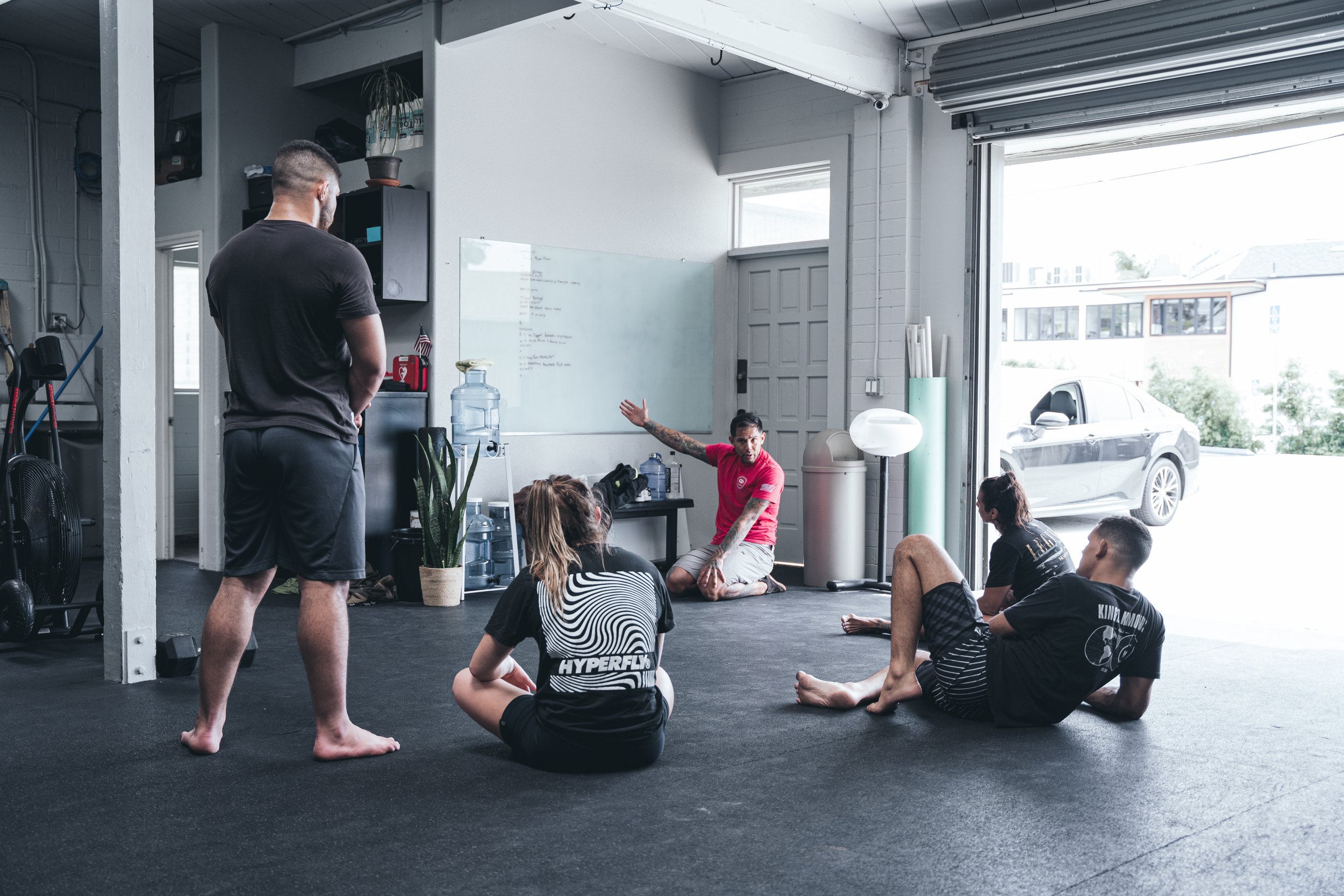Compost Pile: Philosophy of Teaching
Introduction
As I’m pursuing a master's degree in English with an emphasis on education, I remember how some of my former classmates from high school would have made fun of the idea, and even my inner child raises an eyebrow. My desire to pursue education is fueled by the same passion to endure life it’s not necessarily only about teaching, but more about being able to communicate with the world around me effectively. Growing up, reading and writing were not emphasized in my community and school system, which left me struggling to express myself through written and spoken words. Later in life, I realized the importance of communicating effectively which has lead down this road to help others learn new skillsets no matter the sphere they operate in.
Principles Aid in Learning
As an educator in the field of strength and conditioning my philosophy of teaching is rooted in my experiences both as an athlete and coach. Learning how to apply principles of strength and conditioning as a coach becomes a transformative process that extends past the acquisition of methods and coaching techniques. My coaching and teaching career over the years has shifted focus from a singular way to approach learning, to creating a dynamic and inclusive learning environment that encourages creativity and collaboration. Deep in my heart, I believe that every person I get to educate carries an individuality to them that provides them with strengths, limitations, and unique critical thinking and problem-solving abilities. As the coach and educator, it is my responsibility to provide an environment to foster and identify those abilities to help individuals nurture their full potential.
Respect, Tools, and Value
To promote a respectful and cohesive learning environment, it is essential to establish a universal language for communication among the collective and flourish autonomy simultaneously. Respect unlocks the door that allows for implementing effective learning tools that aid in retaining and applying newly learned skillsets in real-life experiences. This mutual respect among classmates fosters a sense of unity and curiosity toward learning.
Each individual possesses a unique set of skills and tools that can enhance everyone’s learning capabilities around them. As the learning progresses, sharing these tools and values leads to a deeper understanding and appreciation for one another. By creating a safe and secure foundation for expressing oneself, each individual can confidently share their true self and contribute to a positive learning experience for all.
Expectations as a Coach and Educator
I hold high expectations for my athletes and students, but they are always realistic and attainable. I believe in mutual respect and expect it to be reciprocated, rather than a one-sided exchange. I encourage curiosity, engagement in learning, problem-solving, and taking responsibility for their learning and development, just as much as I am committed to doing so. I believe in treating others with kindness and professionalism. This means being approachable, compassionate, and responsive to the needs of every athlete and student, while also recognizing their diverse learning styles, training history, learning history, and life experiences.
To foster a collaborative and valued learning environment, I prioritize building strong relationships with individuals. By learning more about each person, I am better equipped to customize my coaching and teaching methods to align with their unique needs, values, strengths, and limitations. This approach emphasizes the importance of valuing each individual's uniqueness.
Motivations, Objectives, and Theories
My passion as a coach and teacher lies in being a supportive tool for those who are willing to explore new ways of navigating their world, both within and outside of the learning environment and themselves. I strongly believe that learning is a skill that needs to be constantly nurtured and developed. My primary objective is to be a positive and motivating presence for my athletes and students, just as much as they are for me. My goal is to establish a sense of community and connection that will enable everyone to reach new heights in their lives.
To achieve my objectives, I have drawn inspiration from various adult learning theories that have helped me shape my teaching philosophy. The views of Andragogy, Transformative Learning, and Experiential Learning have been instrumental in my teaching methods and styles. I believe that self-directed learning, hands-on experience, reflection, and those "aha" moments are fundamental to the learning process. Intrinsic and extrinsic motivation, such as autonomy and relevance, are powerful factors that drive individual’s to actively engage in collaborative projects and connect new concepts to real-world scenarios.
Conclusion
As a coach and educator, I believe in empowering and supporting athletes and students to become active, independent, and lifelong learners. My teaching philosophy centers around creating a learning environment that values and respects diversity; fosters collaboration, encourages critical thinking and problem-solving, and promotes innovative thinking. I will continue to apply adult learning theories such as Andragogy, Transformative Learning, and Experiential Learning to facilitate meaningful experiences for those I get to educate. My passion for teaching lies in building a community of self-directed learners who strive to inspire others and embrace the joy of learning, curiosity, compassion, and lifelong learning through autonomy, effort, motivation, and dedication.
References
Boyatzis, R. E., & Kolb, D. A. (1991). Assessing individuality in learning: The learning skills profile. Educational Psychology, 11(3-4), 279-295. https://doi.org/10.1080/0144341910110305
Hamlin, M. D. (2021). Enabling adult learning advantage in online learning environments. Research Anthology on Adult Education and the Development of Lifelong Learners, 735-756. https://doi.org/10.4018/978-1-7998-8598-6.ch037
Merriam, S. B., & Baumgartner, L. M. (2020). Learning in adulthood: A comprehensive guide (4th ed.). John Wiley & Sons.
